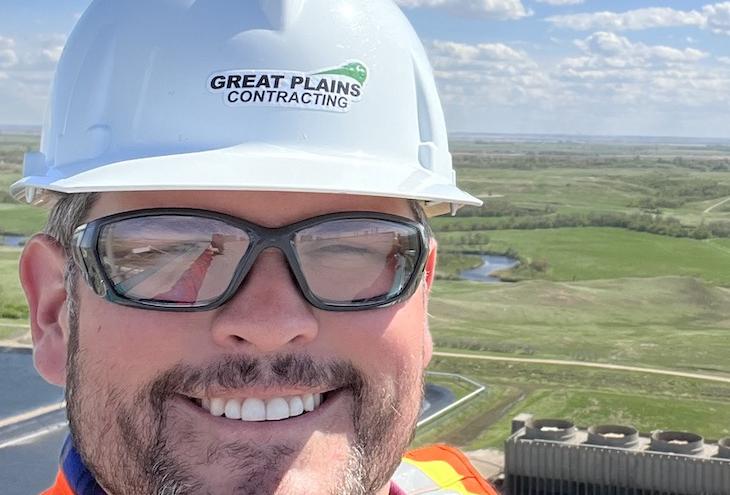How does it work? For John Desjarlais, that question led him to a concentration in mechanical engineering at the University of Saskatchewan. Still, he didn’t come to that decision until several years after high school, so he was 31 by the time he completed his first degree. Desjarlais, Cree-Métis, had already earned a certificate in radiation environmental monitoring and worked professionally. But his childhood interest in the physical world and how things move — how they work — coupled with his enjoyment of math and physics, brought him back to mechanical engineering.
These days Desjarlais is the general manager for Great Plains Contracting, an industrial construction company and First Nations partnership in southern Saskatchewan. The company is focused on assisting industrial mining and energy clients in remote and rural locations in Canada. At Great Plains, Desjarlais is able to combine his engineering background with his passion for connecting with Indigenous workers looking for their next step. “It’s exciting how we are developing stronger relations with Indigenous people in this field and striving to be more inclusive,” Desjarlais says. “It’s all about creating meaningful opportunities for Indigenous peoples.”
Desjarlais is also excited about supporting the company’s development strategy. “It’s important that we cultivate relations with our clients, partners, and Indigenous communities,” he says. “It’s about managing these relationships and designing implementation plans that maximize our business and help support our employees.”
Desjarlais’ previous professional experiences include working for an Indigenous economic development organization, where he focused on businesses, and the uranium mining company Cameco, where as senior managing engineer he led development of its engineering capacity through the company’s training program.
Desjarlais’ interest in reaching out to Indigenous people and making connections among businesses and potential employees dovetails with his many roles at various engineering organizations. He is the first Indigenous president of the Association for Professional Engineers and Geoscientists of Saskatchewan, where he has volunteered for the past 10 years. He also serves as director of the Saskatchewan Construction and Safety Association, director of Saskatchewan Polytechnic, chair of the Indigenous Resource Network, and chair of the Indigenous Manufacturers and Contractors Network.
Desjarlais, who is from Saskatchewan’s Cumberland House Cree Métis community, says he feels strongly about sharing Indigenous values with colleagues and incorporating them into the workplace. “The Indigenous people in my region believe in cultivating strong relations,” he explains. “They place a high value on kinship and connectedness.”
Today Desjarlais is growing opportunities for Indigenous people through his work with AISES. He is a founding and current member and past chair of AISES in Canada (formerly the AISES Canadian Indigenous Advisory Council), which advises AISES on relevant issues and creates opportunities for its First Nations, Métis, and Inuit members.
Desjarlais, who recently participated in the AISES Strategic Visioning session in Denver, says AISES in Canada will host its 2023 National Gathering in person. “It has been very exciting to be a part of the formation and development of AISES in Canada,” he says. “From the formation of student and professional chapters to planning and hosting our own National Conference, I am proud to say I have been a part of creating interest and awareness in organizing a movement with AISES that is structured around Indigenous STEM in Canada.”
His ultimate career goal, Desjarlais says, is to lead growth and inclusion in organizations. To that end he is pursuing a master’s in governance and entrepreneurship in northern and Indigenous areas from the University of Saskatchewan. He also has a master’s in business administration from the same university. In visualizing his future role, he says, “I look forward to using my skills in organizational leadership, governance, and environmental and business planning to benefit economic reconciliation, Indigenous people, and society as a whole.”













